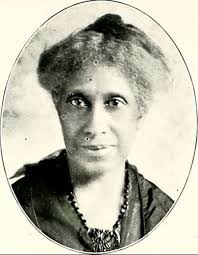For the past few years, the Evanston Women’s History Project has been the home of research for the wider story of Illinois women in the women’s suffrage movement. EWHP staff, interns and volunteers have worked hard not only to tell the story of the work of Evanston women to gain the right to vote, but of all Illinois women.
One of the ways we’ve shared this story is through the National Votes for Women Trail. We’ve researched and populated the trail map with more than 68 sites in Illinois (there are a total 2,174 sites on the national map). We continue adding sites regularly as we complete research.
Recently, we have focused on adding sites that mark the story of African American women’s role in the suffrage movement in Illinois. Though this story isn’t commonly told, and research resources are often hard to find, we have added several sites that help tell the important story of Black women’s involvement in the Illinois women’s suffrage movement.
The story of the Phyllis Wheatley Home in Chicago, and its founder Elizabeth Lindsay Davis, is a good example of the kind of site we’ve discovered and added to the Trail. The Wheatley Home was a settlement house on the south side of Chicago – founded, funded, and visited by African American women. Named after the first African American woman to publish a book of poetry, the Wheatley Home primarily served young African American women who had recently arrived from the south. It was part of a network of Black settlement houses that offered safety and security for these recent migrants, and like all settlement houses, functioned as a residence for women and a gathering place for the community. In its own words, the Wheatley Home provided “housing, health, vocational guidance, recreation, and religious education” for Black women and girls.

The Wheatley home was founded and funded through the initiative of African American Women’s Clubs and was run by club members. Wheatley Home founder Elizabeth Lindsay Davis was a prominent member of the Illinois Federation of Colored Women’s Clubs and a national organizer for the National Association of Colored Women. In addition to their involvement in the club movement, women who lived and worked at the Wheatley Home were also involved in gaining and protecting civil rights for the Black community, and this included work on women’s suffrage.
The Wheatley Home was first located at 3530 Forest Avenue in Chicago from 1908 until 1913 but outgrew this location. In 1915, the Wheatley Home moved to 5128 S. Michigan Avenue where it operated until 1967.
Though the 100th anniversary of the 19th Amendment (August 26, 2020) has passed, the sharing of the significant work for women’s voting rights in Illinois continues. In addition to adding to the Trail map and updating the Illinois suffrage website, projects still in the works for 2021 include historic markers and murals in Evanston and the city of Chicago. The EWHP at EHC is proud to be the home of this story and to ensure that it is shared widely and remembered.
Thank you to EWHP volunteer Julia Flynn for all her assistance with this research and contributing to this post.
